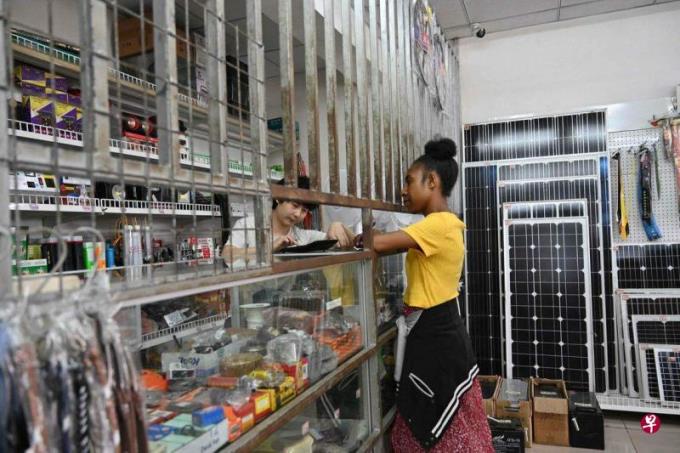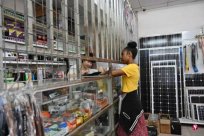
(Molosby Port French New Electric) China invested a lot of funds to the Babu Baya New Guinean in the South Pacific Island, but the local people's appeal failed to get benefits from it.Essence
Papua New Guinea is one of the poorest countries in the world, but with its abundant resources and the superior geographical location close to key channels, it is attracting Chinese funds to pour in.In the capital of the capital Molsby, Chinese -funded projects have sprung up. Among them, the biggest funds are the "Chinatown" built by $ 414 million (about 557 million yuan).Food centers, large supermarkets and other facilities.
Foreign capital influx was originally welcomed by the locals, but they appealed that thousands of Chinese workers were shipped over to take over the work opportunities provided by large -scale construction projects.
The former Congress of the local parliament, Garma, said: "Why are we excluded? What Chinese people can do, our people can do it ..."
China funds or exacerbate the problem of corruption in Pakistan
Unde -sed or idle Chinese construction projects also worry that local people worry that Chinese funds not only do not bring benefits, but will exacerbate the corruption of Papua New Guinea.
The "Chinatown" project has been delayed due to the crown disease epidemic in the past few years.The walls of the conference built by the meeting (APEC) summit were covered with graffiti, and only guards and gardeners were left at the scene. They said that the power supply has stopped since 2018.
Gagarma asked: "The project becomes a ghost project. Where is the money? Where is the development?"
Papua New Guinea became the first country in the Pacific Island country in 2018 to sign a memorandum of understanding of the "Belt and Road" Construction Construction Memorandum.China is currently the second largest trading partner of the country, and has invested in the local construction industry, energy, resources, retail, telecommunications and other industries.
As early as the 19th century, Chinese people moved to the Pacific Island. Since the 1980s, Chinese diaspora became the focus of local political turmoil.The relationship, even caused riots, plundered by Chinese stores.
Di Neng, an associate professor at the National University of Australia, said that the influx of Chinese capital has caused local people to worry about economy and employment security. They also claim that Chinese diasporas have not integrated into the local community and they will return to the country without making money.
60 -year -old vendors Ani can complain: "The opportunity has not been left to us. If this continues, we will have no job soon ... They come here and take away everything."
A Chinese businessman who runs a small supermarket in the local area argued: "Some jobs can't do it, they can't help us ... I don't know why they say that. We need Chinese people to come here to work."




